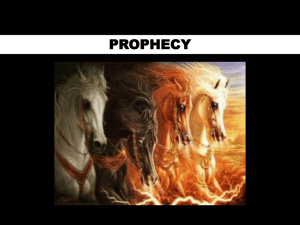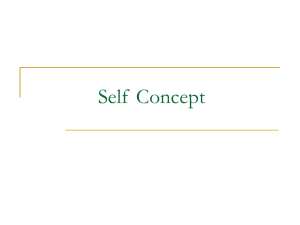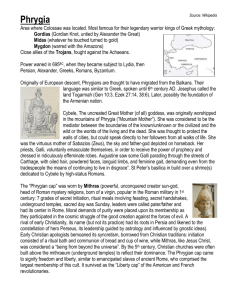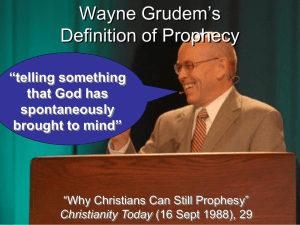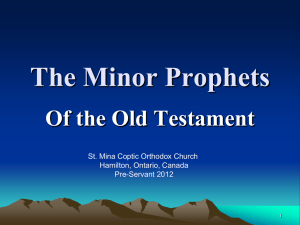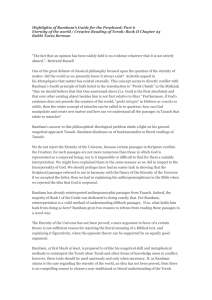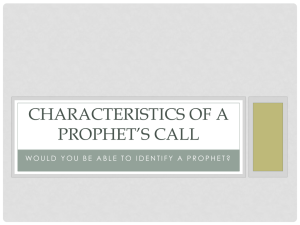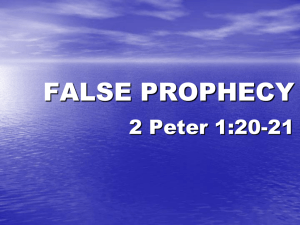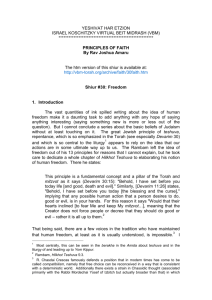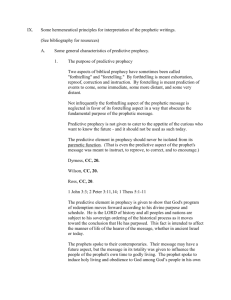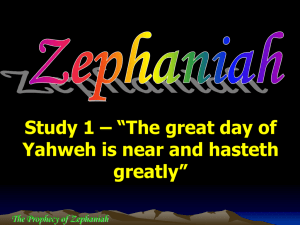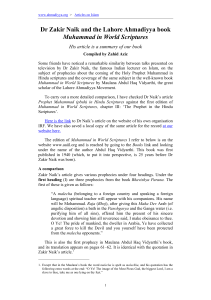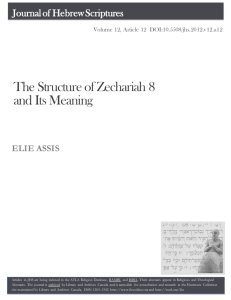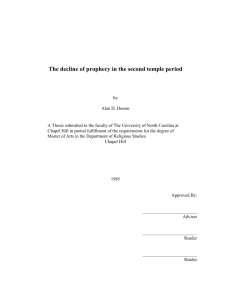Highlights of Rambam`s Guide for the Perplexed
advertisement
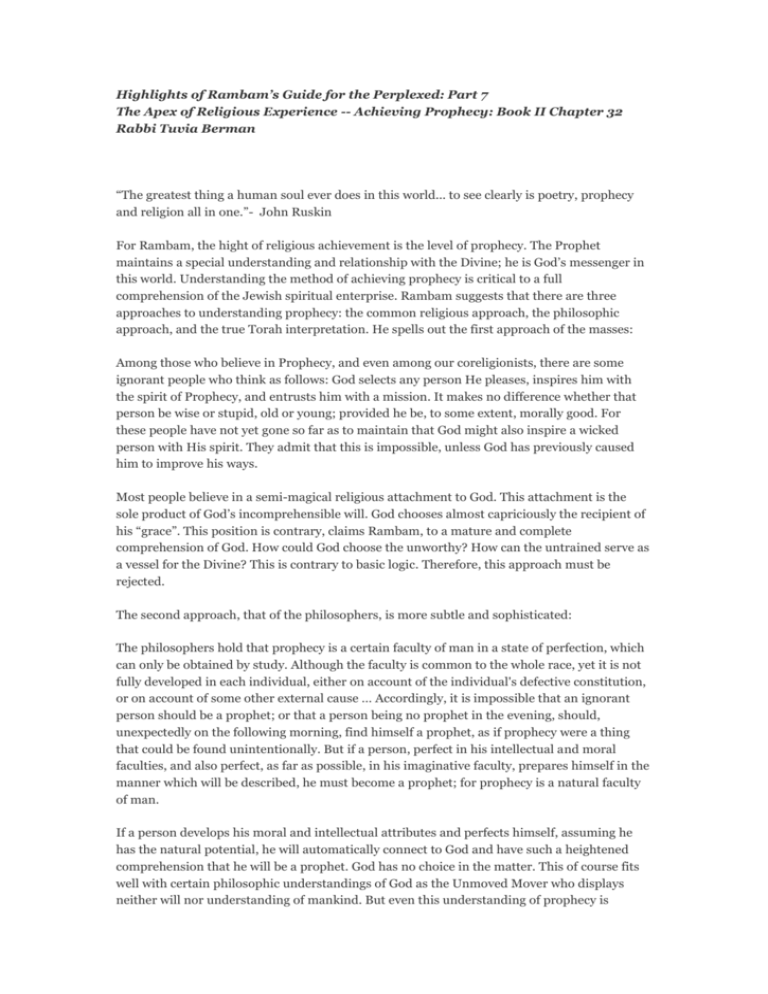
Highlights of Rambam’s Guide for the Perplexed: Part 7 The Apex of Religious Experience -- Achieving Prophecy: Book II Chapter 32 Rabbi Tuvia Berman “The greatest thing a human soul ever does in this world... to see clearly is poetry, prophecy and religion all in one.”- John Ruskin For Rambam, the hight of religious achievement is the level of prophecy. The Prophet maintains a special understanding and relationship with the Divine; he is God’s messenger in this world. Understanding the method of achieving prophecy is critical to a full comprehension of the Jewish spiritual enterprise. Rambam suggests that there are three approaches to understanding prophecy: the common religious approach, the philosophic approach, and the true Torah interpretation. He spells out the first approach of the masses: Among those who believe in Prophecy, and even among our coreligionists, there are some ignorant people who think as follows: God selects any person He pleases, inspires him with the spirit of Prophecy, and entrusts him with a mission. It makes no difference whether that person be wise or stupid, old or young; provided he be, to some extent, morally good. For these people have not yet gone so far as to maintain that God might also inspire a wicked person with His spirit. They admit that this is impossible, unless God has previously caused him to improve his ways. Most people believe in a semi-magical religious attachment to God. This attachment is the sole product of God’s incomprehensible will. God chooses almost capriciously the recipient of his “grace”. This position is contrary, claims Rambam, to a mature and complete comprehension of God. How could God choose the unworthy? How can the untrained serve as a vessel for the Divine? This is contrary to basic logic. Therefore, this approach must be rejected. The second approach, that of the philosophers, is more subtle and sophisticated: The philosophers hold that prophecy is a certain faculty of man in a state of perfection, which can only be obtained by study. Although the faculty is common to the whole race, yet it is not fully developed in each individual, either on account of the individual's defective constitution, or on account of some other external cause … Accordingly, it is impossible that an ignorant person should be a prophet; or that a person being no prophet in the evening, should, unexpectedly on the following morning, find himself a prophet, as if prophecy were a thing that could be found unintentionally. But if a person, perfect in his intellectual and moral faculties, and also perfect, as far as possible, in his imaginative faculty, prepares himself in the manner which will be described, he must become a prophet; for prophecy is a natural faculty of man. If a person develops his moral and intellectual attributes and perfects himself, assuming he has the natural potential, he will automatically connect to God and have such a heightened comprehension that he will be a prophet. God has no choice in the matter. This of course fits well with certain philosophic understandings of God as the Unmoved Mover who displays neither will nor understanding of mankind. But even this understanding of prophecy is lacking. The philosophers leave no room for God; everything is automatic. If the common understanding of prophecy is unsophisticated and illogical, the philosophers’ version denies God any role whatsoever. This cannot be the approach of the Torah which demonstrates that HaShem works in the world and relates to Man. Rambam’s final approach is what he deems to be the Torah’s interpretation. In a sense this combines both the advantages of the other two: The third view is that which is taught in Scripture, and which forms one of the principles of our religion. It coincides with the opinion of the philosophers in all points except one. For we believe that, even if one has the capacity for prophecy, and has duly prepared himself, it may yet happen that he does not actually prophesy. It is in that case the will of God [that withholds from him the use of the faculty]. According to my opinion, this fact is as exceptional as any other miracle, and acts in the same way. For the laws of Nature demand that everyone should be a prophet, who has a proper physical constitution, and has been duly prepared as regards education and training. If such a person is not a prophet, he is in the same position as a person who… is deprived of the use of his hand, or of his eyes. In most ways, Rambam agrees with the philosophers, and unlike that of the more common notion, that the road to becoming a prophet requires significant preparation: moral and intellectual. The religious faculty is similar to a muscle. Almost everyone has this capability. However, like muscles, a person must exercise the religious faculty and cannot expect it to come without work. Preparation, like the philosophic position, is necessary, but unlike the philosophers, Rambam claims it is not sufficient. God has a choice. Sometimes, theoretically worthy individuals may be denied prophecy. For Rambam, reaching religious heights is a two way street. God may reach out his hand or hold it back, but unless the person stretches forth his own hand, he can’t touch God. Prophecy, as the ultimate in religious experience requires a partnership between man and God.
